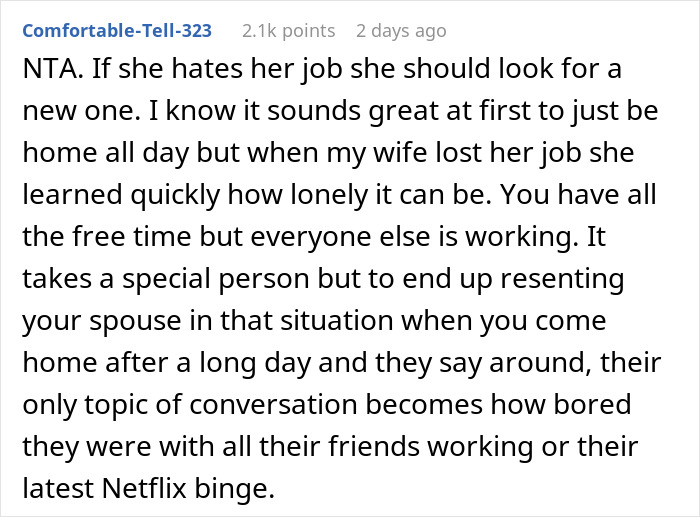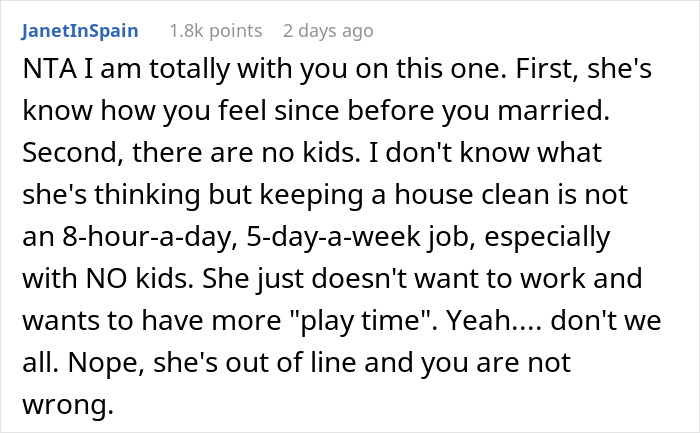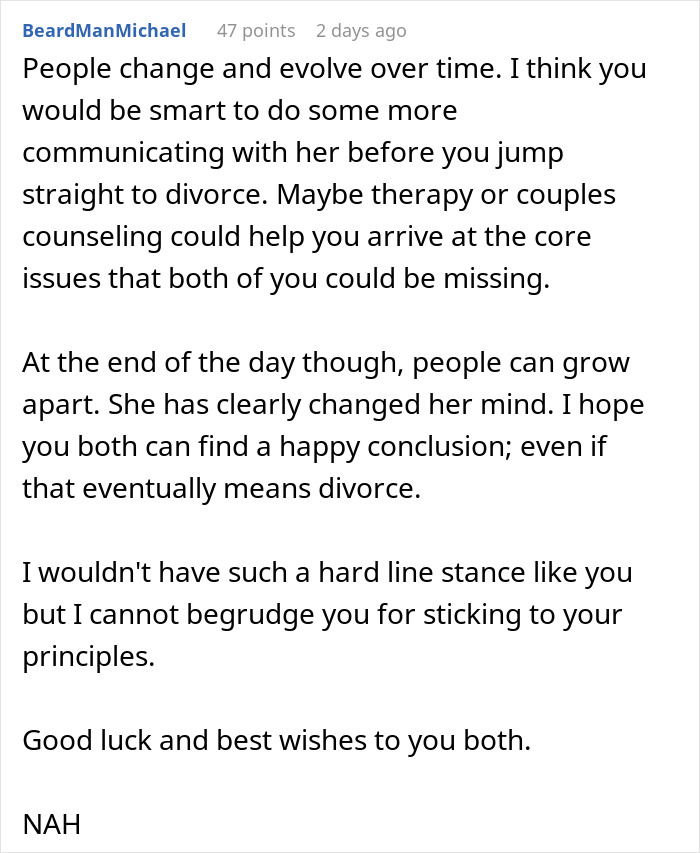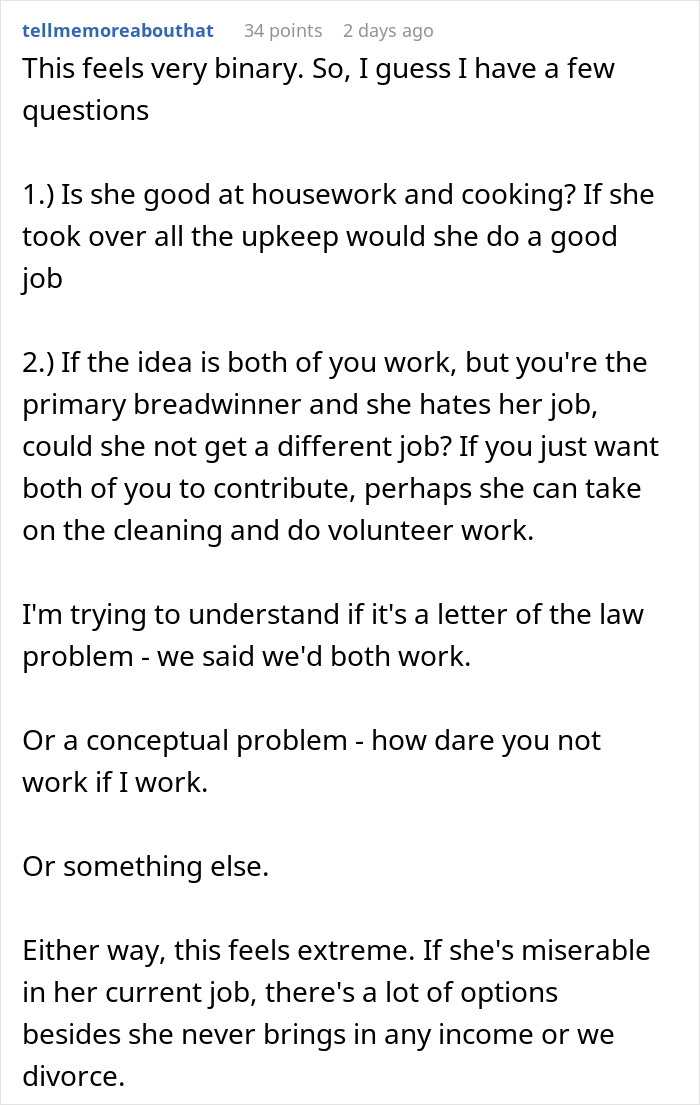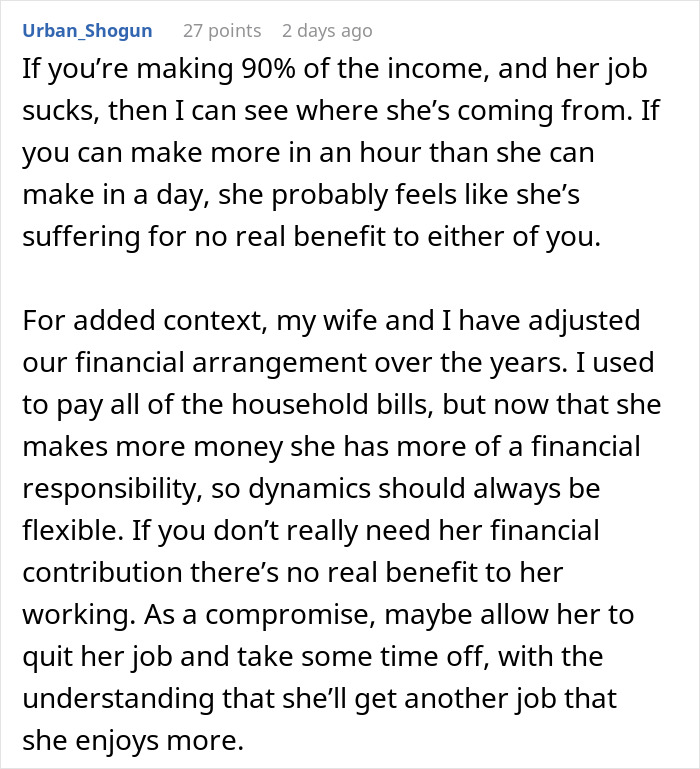A marriage is supposed to last for a happily ever after, but just a few years into his, Reddit user Negative-Dog1600 heard his wife make a statement that got him thinking about divorce.
The man said they agreed to pursue their careers and firmly committed to never becoming stay-at-home spouses. However, the woman recently revealed her desire to become a housewife, and this made him question if he truly knew her.
Now, the man fears he might be facing irreparable trust issues.
This man and his wife had agreed they would never be stay-at-home spouses

Image credits: Mikhail Nilov / pexels (not the actual photo)
However, the woman changed her mind

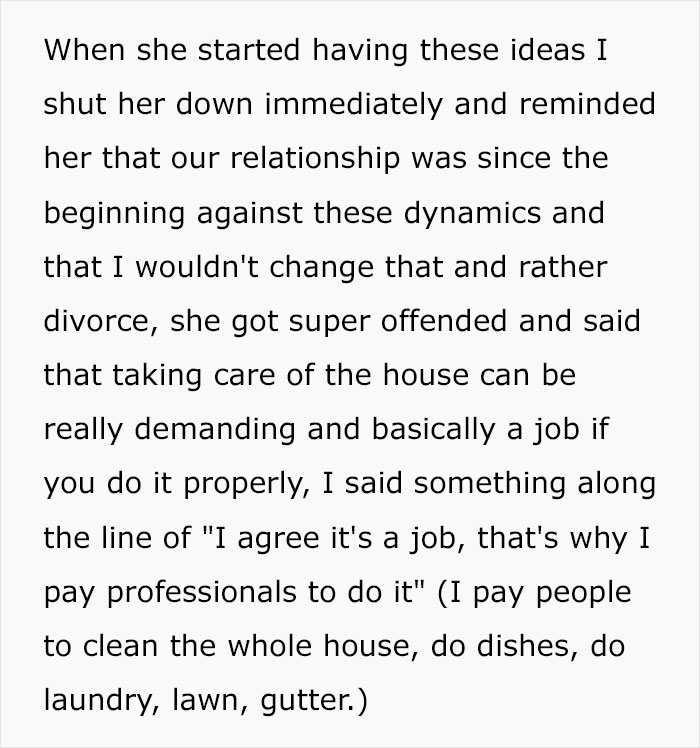







Image credits: LightFieldStudios / envanto (not the actual photo)

Image credits: Negative-Dog1600
In recent decades, the share of stay-at-home parents has fluctuated, rising during periods of higher unemployment
Given the chance, many would take the route that the Redditor’s spouse is thinking about. A Gallup Poll found that more than half of women in the U.S. with children under the age of 18, 56%, would prefer to stay home over going to work, and 39% of women without children under the age of 18 said they wanted the role of homemaker.
However, only 24% do. There are multiple reasons for this, but the US has largely been a place that makes few allowances for the needs of parents, and working mothers in particular. Parental leave is not mandated, work hours are often long, and the state doesn’t provide free or subsidized countrywide childcare, which exists in many other countries. Not to mention that unpaid domestic work tends to fall disproportionately on women. Women are significantly less satisfied at work too, according to data released by the Conference Board, a business research organization. Plus, a global report on women at work released by Deloitte found that, in the US, a standout reason for that was lack of flexibility.
While watching a partner change is hard, it’s not that uncommon. Personalities are more malleable than we might think. Most of us change, though often gradually, according to a study published in 2018 by the University of Houston, University of Tübingen, and University of Illinois at Urbana-Champaign, which assessed the personality traits of 1,795 people in the U.S. in adolescence and then 50 years later. (Many participants of the study became more emotionally stable, conscientious, and agreeable over time.)
“Communication has and will always be the key to mitigate negative feelings around change in your relationship,” said Jeff Gardere, a psychologist in Manhattan and an adviser for Ro Mind, a digital health service addressing anxiety and depression. “Talk about the change you experience, perceive, and are impacted by. These continuous conversations should always be framed in the mindset of learning, compromise, and conflict resolution.”
As his story went viral, the man joined the discussion in the comment section






